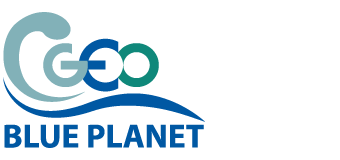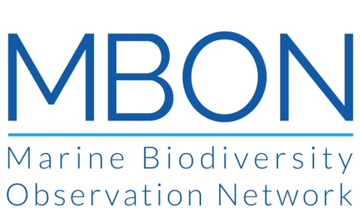Marine Biodiversity Workshop: from the Sea to the Cloud
Twenty-five researchers from the Americas have been selected to participate in a five-day training program offered by the Pole to Pole Marine Biodiversity Observation Network (MBON) of the Americas (P2P) and AmeriGEOSS. The workshop includes marine scientists working on coastal ecology from pole to pole. The program will focus on marine biodiversity activities in the field and behind the computer; it promotes a community of best practices and data sharing. Specifically, the activities will be to:
- Collect field data across multiple habitats: rocky intertidal and sandy beaches habitats;
- Manipulate tabular and spatial data for standardized data formats, such as Darwin Core, while controlling for quality;
- Publish datasets to the Ocean Biogeographic Information System (OBIS) using tools for sharing data;
- Train on data science tools (R, Rmarkdown, Github) to mine data, conduct discovery and analysis, and produce reproducible research documents with interactive visualizations onto the web.
- Illustrate the process of submitting and editing Best Practices (field methods, analyses, metadata) of the Intergovernmental Oceanographic Commission Ocean Best Practices (Ocean Best Practices Repository: https://www.oceanbestpractices.net/)
WORKSHOP GOALS:
This workshop is a foundational step in the implementation of the P2P network. Participants will develop standard protocols for field data collection, data formatting and publishing, following international standards (e.g. Darwin Core – DwC). The ultimate goal is to develop a network that helps nations and regions to improve conservation planning and environmental impact mitigation, serve the scientific community, and satisfy commitments to the Intergovernmental Science-Policy Platform on Biodiversity and Ecosystem Services (IPBES), Aichi Targets of the Convention of Biological Diversity (CBD), and the UN 2030 Agenda for Sustainable Development Goals (SDG’s) by:
- enhancing coordination of data collection among nations;
- improving the collection of harmonized data, developing data standards and methodologies for data management and dissemination without compromising national concerns (i.e., use and contribute to Best Practices for the measurement and curation of Essential Ocean Variables and Essential Biodiversity Variables);
- integrating biodiversity information with physical and chemical data over time (status and trends);
- and generating products needed for informed management of the ocean.
This activity will train participants from 10 countries in the America, from Canada to Patagonia, in methodological approaches for assessing biodiversity of rocky intertidal areas and sandy beaches, collecting environmental data that allow to evaluate drivers of biodiversity change in these habitats. This effort also seeks to enhance capacity in geospatial data analysis and visualization using R software, and data formatting and sharing via the Ocean Biogeographic Information System (OBIS). Instructors facilitating training efforts in these various topics include:
Enrique Montes (USA; P2P lead at USF)
Gil Rilov (Israel; National Institute of Oceanography)
Antonio Marques (Brazil; CEBIMar)
Augusto Flores (Brazil; CEBIMar)
Maikon Di Domenico (Brazil; Universidade Federal do Paraná)
Patricia Miloslavich (Australia; U. Tasmania / GOOS)
Eduardo Klein (OBIS)
Frank Muller-Karger (USA; USF)
Emmett Duffy (USA; Smithsonian I.)
Ben Best (USA; EcoQuants)
Fernando Lima (Portugal; University of Porto)
Brian Helmuth (USA; Northeastern University)
The P2P workshop is supported by NASA and will be hosted by the Center for Marine Biology (CEBIMar) of the University of Sao Paulo in Praia do Segredo, São Sebastião, São Paulo, Brazil. Workshop details can be found at https://marinebon.github.io/p2p-brazil-workshop/.

